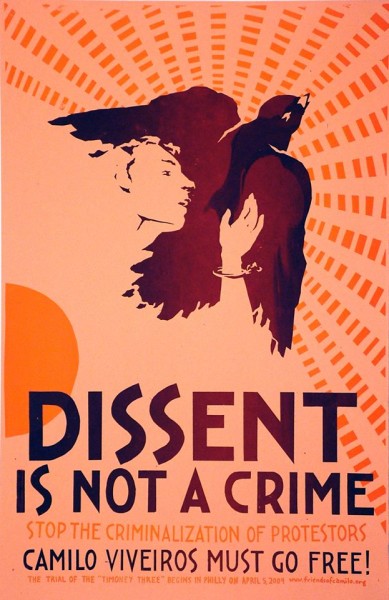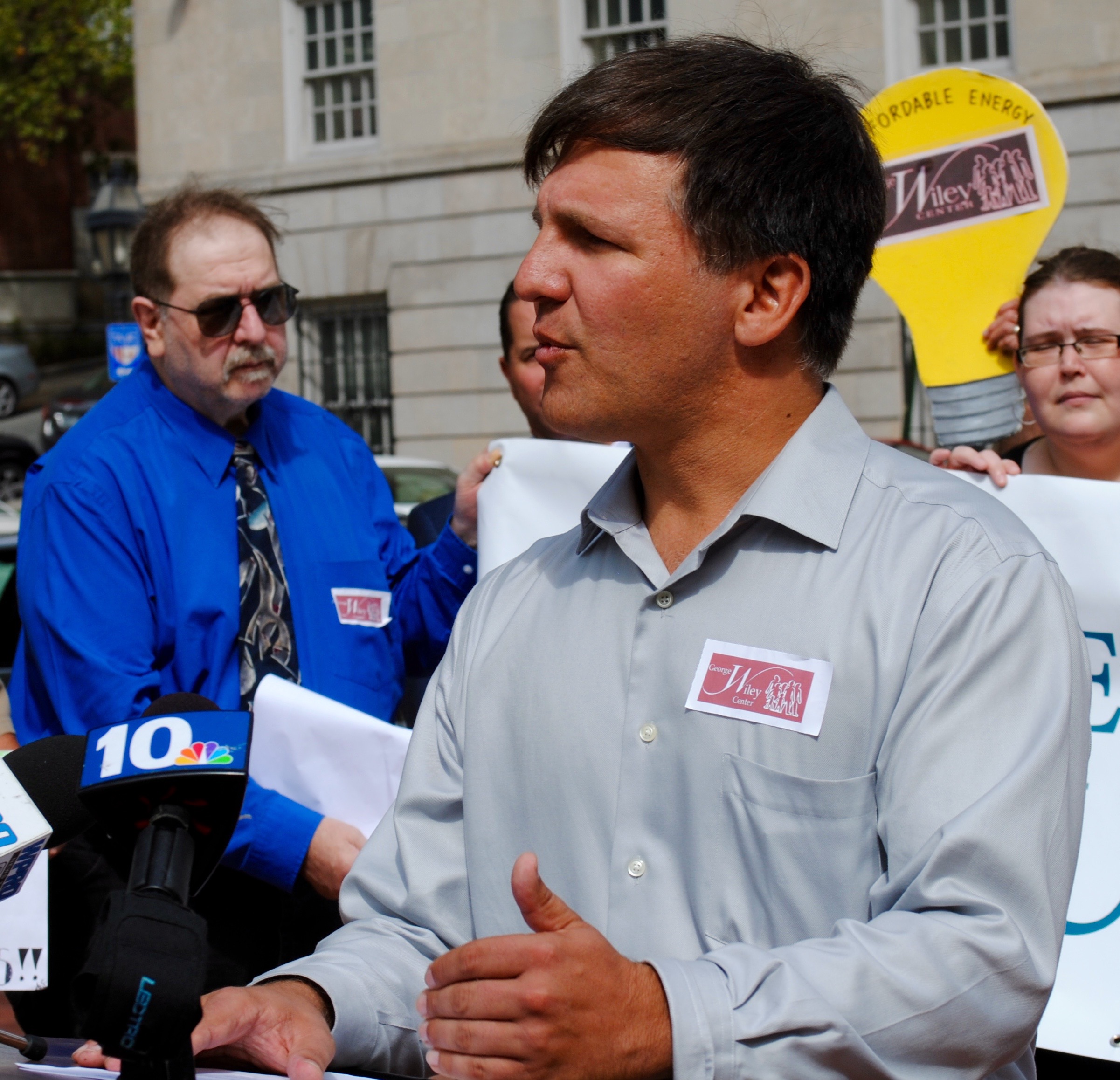
I didn’t know Camilo Viveiros until some years after he had been acquitted of all charges, after an intense 4 year legal battle, but I continue to be inspired by what he and others have gone through, putting their bodies on the line to protest systematic injustices.
In 2000, at the time working as a low-income tenant organizer in Southeastern Mass, Camilo and other activists went to Philadelphia for the Republican National Convention to protest poverty, the prison industrial complex, and the death penalty. The day he was arrested he was taking part in a march against police brutality, an issue that now, due to the brave actions of black activists and allies, the nation is finally somewhat waking up to, but at the time was still considered very controversial (at least by those who had not seen its effects first hand or with loved ones). Camilo faced spending the rest of his life in prison, charged with felony assaults against the police commissioner of Philadelphia, John Timoney, and accused of using a bicycle as a deadly weapon on a different police officer.
What happened was during a march Camilo was attacked by police, kicked and punched and his head slammed on the sidewalk until he was unconscious, detained and arrested, interrogated for 16 hours, threatened by correctional officers, denied access to medical attention for injuries from police assault, taken to a hospital after 3 days of requesting medical attention where officers (after the threat of a “joy ride” on the way there) were intimidating with Camilo every moment as he told the doctor how he had received the injuries from the police. He was put back in the prison, held in solitary for days, and accused on trumped up charges that would go on to affect the next 4 years of his life and beyond.
As more people increasingly are aware, it is a typical practice for police who commit brutality to charge those they assault with being violent or provoking a response, as a way to flip around the narrative, diminish sympathy for the victim and to cover up their own actions. During the protests hundreds of people were arrested as a part of state suppression of free speech, and while most charges were quickly dropped, others still faced serious charges, with Camilo getting the most severe charges of all the activists. They wanted to make an example of him and others, to other activists or would-be activists, that political dissent would not be tolerated.
But the case became an example of organizing against repression, with lessons learned from community organizing. People from across the country banded together in solidarity with those arrested in Philadelphia, and the groups formed included Love and Resistance in Providence and “Friends of Camilo” groups in Boston, San Francisco and Philly. In Providence, and elsewhere, local gatherings and fundraisers took place in the early 2000’s to help cover legal costs, which for working class people like Camilo were/are entirely unaffordable. Many people took part in the effort and it made an enormous difference in the outcome. A legacy of this community solidarity still exists in Providence, where the supportive social networks of Love and Resistance fueled the founding of groups like Recycle a Bike and Providence Books through Bars.
Thanks to massive grassroots support, after 4 years of fighting, Camilo was finally acquitted of all charges. As for Commissioner Timoney, he went on as a sort of professional crusher of dissent, first to Florida to repress opponents of free trade agreements, and later internationally to places like Bahrain where he was involved in offering strategy to suppress popular protests during the Arab Spring. If you have met Camilo in the past 10 years you may not be aware of this history, he doesn’t often bring it up, choosing instead to focus proactively on the many issues of current injustice. But I can see how he, like others who have been much more egregiously chewed up and spit back out by the “justice” system, still lives with the impact, and will for the rest of his life. I appreciate when now and again Camilo shares reflections from his experience, and that he remains dedicated, continuing as a community organizer and activist despite, and probably partly because of, the hardship he went through. He knows too many have been through much worse. He knows he is fortunate to be free and I can attest he spends every single day (really, 7 days a week) working to advance freedom and equality for those who are suppressed, oppressed, and born into systems of injustice.
I deeply admire all who have taken part in direct action, putting themselves at risk for the common good, an extra challenge in the days before social media when activist actions were much more isolated from public awareness and the lack of smart phones did not provide the security and documentation that today’s activists are able to utilize. And even though it was some years ago, there are many relevant lessons to be learned for current efforts toward social change, including the critical need for organizing beyond activism, and ways to collectively push for systems of inclusive justice that do not oppress us based on race, gender, class, ability, age, geography, language, religion, education, appearance, and on and on…
I hope some local friends can make it to an event tomorrow (Crashing the Party: Political Protest and Legal Strategies, Friday, June 3rd, 5-7pm, IWW Union Hall, 375 Smith St, Providence), thanks to the Rhode Island chapter of the National Lawyers Guild for coordinating this discussion around free speech and protest. There will be a chance to discuss strategy and practice with Kris Hermes who recently wrote a book about the legal collective that helped support many of the arrestees from the 2000 RNC protests, as well as attorneys with the RI National Lawyers Guild who play a critical role in offering support to social justice activists, and Camilo who will share his personal story and reflections. I truly believe in the effectiveness of protests, actions, and organizing. It’s the part they leave out of the history books sometimes, that speaking up for ourselves and for each other creates ripples that make waves that make this world better.


Deprecated: Function get_magic_quotes_gpc() is deprecated in /hermes/bosnacweb08/bosnacweb08bf/b1577/ipg.rifuturecom/RIFutureNew/wp-includes/formatting.php on line 4387
Deprecated: Function get_magic_quotes_gpc() is deprecated in /hermes/bosnacweb08/bosnacweb08bf/b1577/ipg.rifuturecom/RIFutureNew/wp-includes/formatting.php on line 4387
Deprecated: Function get_magic_quotes_gpc() is deprecated in /hermes/bosnacweb08/bosnacweb08bf/b1577/ipg.rifuturecom/RIFutureNew/wp-includes/formatting.php on line 4387